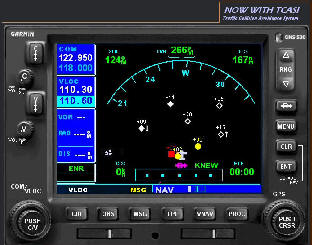|
|||||||||||
|
|
|
|||
|
By Daniel Baxter |
||||
 |
July 7, 2010 - The FAA has reached an agreement with Georgia Tech to research how the increased sophistication on the flight deck under the Next Generation Air Transportation System (NextGen) will affect flight crewmembers and controllers. The agreement is the first of several the FAA expects to announce in the coming months with universities that specialize in aviation-related human factors research. For the FAA, the work will be conducted by the Human Factors Research and Engineering Group, which is part of the Research and Technology Development Office.
Amy Pritchett, an
associate professor in Georgia Tech's |
|||
|
|
||||
|
TCAS warns pilots about potential mid-air collisions and gives specific instructions on evasive action to both pilots. Pritchett's team will examine how pilots should respond to these alerts in the future, when the increased safety and efficiency that comes with NextGen's satellite-based technologies means that aircraft may be operating closer together. Frank Durso, an Engineering Psychology professor, will lead a team exploring how flight crews and controllers interact with automation. Specifically, Durso's team will focus on how roles will evolve with NextGen technology. Durso will first lay the groundwork by examining how pilots and controllers work with today's automation. His team will then see how pilots and controllers in the future can use automation to manage their workloads and to improve their situational awareness and performance. Research results will also help FAA develop guidance for aviation safety oversight of NextGen operations. Georgia Tech, which has conducted important aviation-related human factors research for the FAA and the National Aeronautics and Space Administration, was chosen after the FAA conducted a thorough market survey of schools with expertise in this area. In addition to an outstanding staff and students, the school has a wide range of aviation research capabilities including air traffic control simulators and an Airbus flight deck simulator. |
||||


